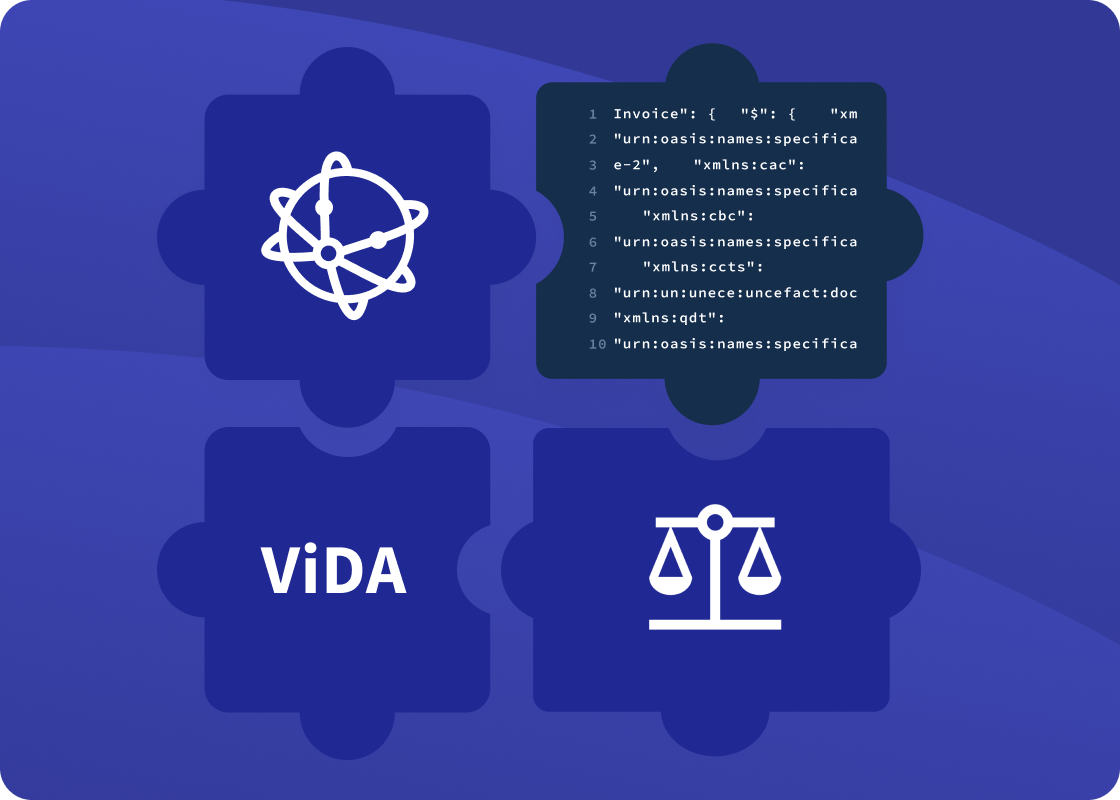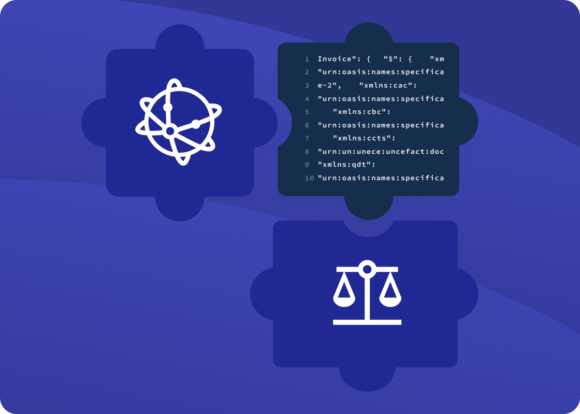
On November 5th, 2024, the EU Council agreed on ViDA, the VAT in the Digital Age package, introducing a modernized VAT approach to support digital transformation, simplify tax compliance, and reduce fraud.
These new measures—covering electronic invoicing, real-time data reporting, and VAT regulations for digital platforms—will be implemented gradually, with some elements taking effect as far as 2035.
Here are the key takeaways and the timeline for businesses to prepare.
Digital VAT reporting via e-invoicing by 2030
By 2030, all EU cross-border business-to-business (B2B) transactions will be required to use electronic invoicing, enabling real-time digital reporting. Businesses must issue e-invoices automatically reporting VAT data to national tax authorities, leveraging Peppol as the EU-wide infrastructure for seamless sharing of business transaction data.
- Key Benefit: Real-time data access will allow tax authorities to detect fraudulent activities early, helping to curb VAT fraud.
- Timeline: E-invoicing will be mandatory by 2030, with national systems required to be interoperable by 2035.
- Preparation: Businesses should evaluate e-invoicing platforms and processes to ensure compliance and efficiency as the 2030 deadline approaches.
VAT collection for the platform economy
A significant change involves the VAT obligations for digital platforms that facilitate short-term accommodation and passenger transport services. Under the new rules, platforms will act as ‘deemed suppliers’ when the service providers themselves are not registered for VAT. This means platforms will collect VAT directly from the customer and remit it to tax authorities.
- Flexibility: Member states can exempt small and medium-sized businesses from the deemed supplier obligations.
- Transition: The EU Council has granted a short transition period to implement the new VAT rules for the platform.
- Preparation: Platform operators should assess their VAT collection capabilities and ensure they can fulfill supplier obligations.
Expanded One-Stop-Shop for VAT registration
The existing VAT One-Stop-Shop (OSS) system, which allows businesses to handle VAT compliance for cross-border sales through a single EU member state, will now extend to more types of transactions. This includes business-to-consumer (B2C) sales of goods and services within the same country and cases where businesses move stock to another EU member state for future sales.
- Simplification: The expansion reduces the need for multiple VAT registrations, allowing businesses to fulfill obligations through a single online portal.
- Preparation: Businesses moving stock across borders or in cross-border B2C sales should explore the OSS option for streamlined VAT reporting and compliance.
Reverse charge mechanism for B2B transactions cross-border
The new package mandates using the reverse charge mechanism for certain cross-border business-to-business (B2B) transactions. This mechanism shifts the responsibility for VAT payment from the supplier to the buyer, simplifying VAT administration when the supplier is not established in the buyer’s member state.
Timeline for implementation
The EU Council expects the ViDA package to be formally adopted after final consultations with the European Parliament. Here is a high-level timeline for key components:
- 2025-2028: The expanded OSS and reverse charge mechanism may become available sooner, allowing businesses to start benefiting from streamlined VAT processes.
- 2030: Mandatory electronic invoicing and real-time digital VAT reporting for cross-border B2B transactions.
- 2035: Full interoperability across EU member states’ e-invoicing systems, allowing seamless cross-border VAT compliance.
How Qvalia supports your VAT compliance
Qvalia’s complete Peppol services and advanced data normalization model empower businesses to meet VAT in the Digital Age requirements. The platform ensures seamless compliance by automating detailed reporting on all sales and purchases through Peppol-compliant e-invoicing, standardizing transaction data across borders. This integration enables accurate, real-time VAT reporting, minimizing errors and enhancing visibility. With Qvalia, businesses can confidently navigate the new regulations and optimize their tax compliance processes.
Learn more about the infrastructure of transactions in Peppol Academy.



